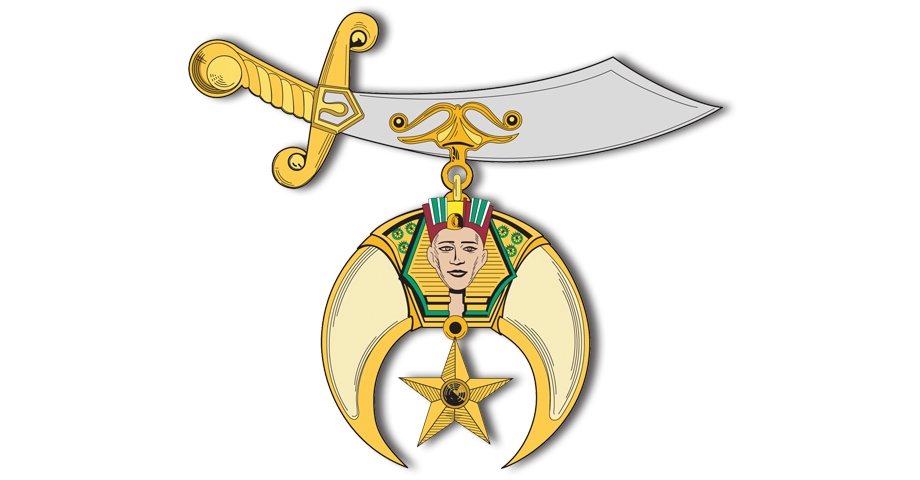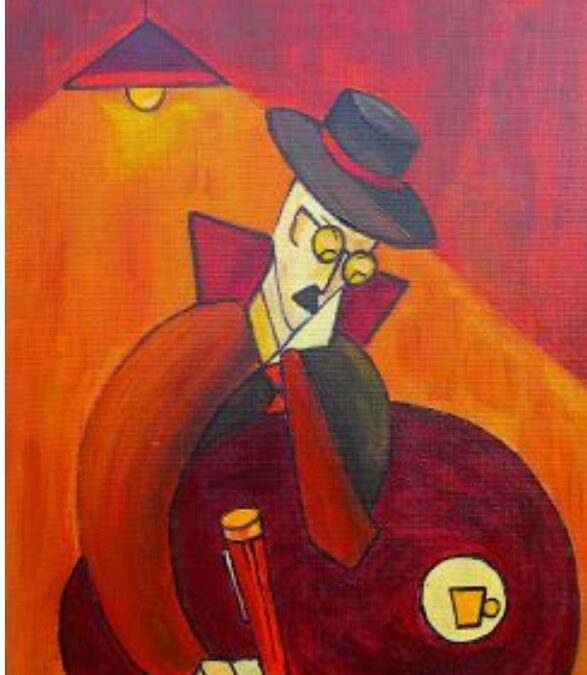A study of the attributes of the life of one Fernando Pessoa reminds us of the unique nature of such a man. Although largely a mysterious poet or lyricist of his time in pre-war Portugal, he was often thought of and referenced as to being a mystic. His defense of Freemasonry was pronounced. He was born in Lisbon, Portugal in 1888 and died in November of 1935. He was remembered for “Mensagem” (Message) a book of forty-four poems published. He often would publish under various pseudonyms such as; Alberto Caeiro, Ricardo Reis, and Alvaro de Campos. All in an effort to express his diverse and sometimes confrontational opinions on a range of topics. Fernando Pessoa was big on the soul as well as prose and poetry. It became what he called a “privileged vehicle”.
He said “In prose we speak freely. We can incorporate poetic rhythms, and yet remain outside them”. He wrote in both English and Portuguese. He self-published of his English poetry in 1918 called “The Mad Fiddler”. He authored long essays that over time became chaotic as his English began to go astray. He continued to write in English up until his death. By 1912 Portuguese had overtaken his English as his main writing technique. In his youth he spent a number of years in South Africa where English was the primary language.
The “book of disquiet” Fernando’s seminal work of literature expresses much of the thinking and opinions. Pessoa was held in such high regard as the father of Portuguese poetry, that his body is entombed in a place called Jeronimo’s Monastery where Vasco De Gama, Eusebio, Amalia, and other notable Portuguese luminaries rest.
(Portuguese Fado singer), and Eusebio, (world’s greatest footballer as many other noted Portuguese dignitaries are entombed here amongst the cloisters of this place in Lisbon, Portugal. Pessoa was captivated by Freemasonry! He owned hundreds of books and writings on Occultism. Ranging from the Occult to Kabbalah and yes, Rosicrucianism. He studied numerous spiritual paths and was an astute student of Astrology. He was not a believer of a particular creed and was agnostic to the general thought of spiritual supremacy. He was especially interested in the theories of Rosicrucianism. The symbol and its initiation leading through successive degrees and its union with God This fueled his passion for Astrology. “what operates on us is a destiny” he wrote. The richness of this connection of Astrology to the stars symbolizes Rosicrucian which in turn, is related to Freemasonry and Kabbalism in his analysis. Fernando Pessoa also claims an Initiation into Portuguese Knight Templary. However, no proof of this exists. Fernando also had an ongoing friendship with English mystic and Freemason protagonist Aleister Crowley who visited Lisbon in 1930. In a number of esoteric poems Fernando’s spiritual inspiration grew exponentially.
He began to write on the hermetic traditions extensively in his work. Many of his writings from this period are on the subject and are tied strongly to astrological interpretations being intertwined which leads to his mystical side of the though and the alignment with kabbalistic traditions. He later writes in “The book of disquiet” a recount of a variety of religious experiences. He writes and I quote; “frightful nights hunched over tomes by mystics and Kabbalist’s” “rites of the Kabala and the Templars oppressed me for a long time. He continues; “today I am an ascetic in my religion of myself. A cup of coffee, a cigarette and my dreams can substitute quite well for the universe and it’s stars, for work, for love, and even beauty and glory”. As can be seen Fernando was a complex individual at a time whereby free thought and religious beliefs were not exactly an item in vogue in early European cultures of the 20th century. For all his failings and self-professed beliefs Fernando Pessoa reminds us all of Freemasonry’s demonstrations of God given right and free thought that we so earnestly solicit in our masonic undertakings and our daily life.
Pessoa, F., & Zenith, R. (Ed.). (2000). The Selected Prose of Fernando Pessoa. Grove Press.


Recent Comments